My November reading report is a little late because of some technical issues with the website, but we appear to be back up and running, so let me tell you about the books I read last month:
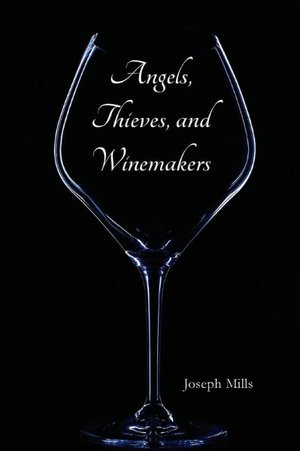
Angels, Thieves, and Winemakers by Joseph Mills is a collection of poems from Press 53 about wine. At a recent Press 53 online event, I heard Mills read from the book, which I had already purchased. As it turns out, I also had a copy of an earlier edition of the book, which has now been revised and expanded. The poems are mostly fun, looking at the experience of drinking wine but also the nuances of tasting wine, storing it, growing it, etc.
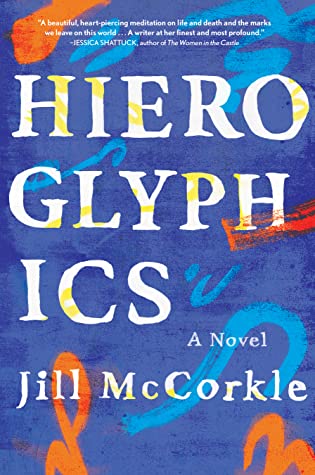
Hieroglyphics by Jill McCorkle was, I’m reluctant to admit, a disappointment. I like the conceit well enough, and the sentences are fine, and the characters interesting, but something was lost in the execution. There are four points of view here: an elderly couple at the end of their lives who have moved south to be near their children and a single mother and her young son. Of the four, the young mother is the source of the most drama, as she has secrets and is extremely distracted, always at risk of losing it. Her son, born with a cleft palate, has his problems, too, some of which are the result of his mother’s neurotic behavior and some deriving from his deformity, which he often hides with a false moustache. The older couple are more problematic, although they have large and intriguing backstories (which might be my real problem with the book as their pasts never come alive for me). They both have interesting flaws, and both are plagued by the tragedies that befell their parents. Now, they’re contemplating checking out early, or at least Frank, the husband, is. He’s got dementia, apparently, and he thinks he might want to die before it gets too bad. His wife, Lil, a life-long smoker, has emphysema, and she’s well aware of her husband’s flaws and also his thoughts of leaving, but she’s clinging to life. The two pairs of narrators come together because the mother and son live in the house where Frank lived as a boy, and he’s intent on rediscovering his past—reading the hieroglyphics, so to speak—and thinks visiting the house will help. Despite a brief moment where the characters come together in a climactic scene, I found it all a bit unsatisfying.
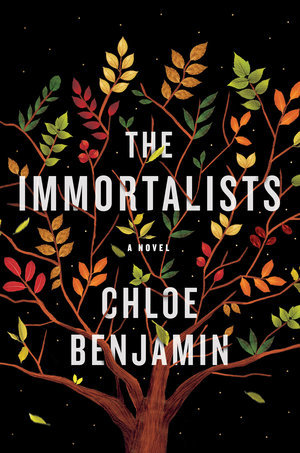
The Immortalists by Chloe Benjamin is an odd tale that, on balance, I didn’t care for much. It begins with four Jewish siblings visiting a fortune teller in New York City. They keep secret what she tells them, but it involves their date of death. Then, some years later, their father dies. The two older kids are in college, the two younger ones in high school, and right after Klara graduates from high school she and the youngest, Simon, head out for San Francisco. Klara thinks she’s doing Simon a favor because she realizes he’s gay, and at the time it was the only place to be. The rest of the book explores if, when, and how the fortune teller’s predictions about their deaths come true. I found the book even less credible than some sci-fi and fantasy novels I’ve read, not because of the fortune-telling but because of the characters’ reactions to it. While it’s true that people don’t always behave logically, these people have responses that just don’t ring true.
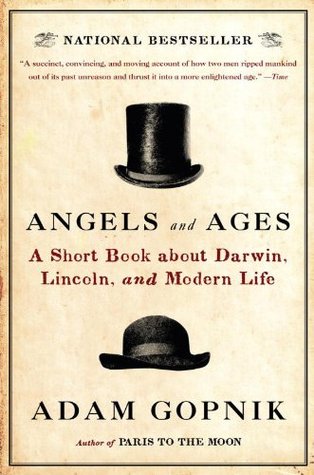
Angels and Ages by Adam Gopnik was my book club’s selection for November. It’s about Abraham Lincoln and Charles Darwin, men born on the same day in 1809, both of whom were known for their grand rhetoric and ideas. Lincoln’s words are known to us mostly through his speeches, especially a handful of famous ones like the Gettysburg Address. Darwin’s language we know from his books, especially On the Origin of Species, but also later works, as Gopnik relates. The men seemed to share some other beliefs, including agnosticism and they were both opposed to slavery. Other than that, the linkages seem tenuous. The title of the book derives from the controversy over the words spoken at Lincoln’s deathbed: “Now he belongs to the ages” or “Now he belongs to the angels.” Pretty dry reading, although I learned some things, especially about Darwin.
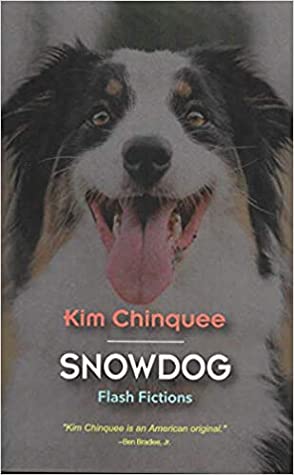
Snowdog by Kim Chinquee is a short collection of flash autofiction featuring the author—both in her own name and another name, plus a boyfriend (or two?), a son and daughter-in-law, and countless dogs belonging to all the human characters. The narrators always seem torn between their relationships and other obligations, but the dogs provide a steady presence.
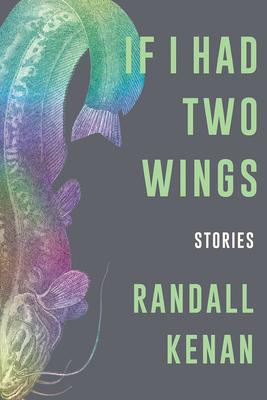
If I had Two Wings by Randall Kenan is a collection of short stories published not long before Kenan’s death earlier this year. My review of the book is slated to appear in Southern Review of Books. It’s a terrific collection of stories about the people of Tims Creek, York County, North Carolina, the territory Kenan has explored before. I totally loved the first story, about a plumber who comes to New York City with his wife for her Baptist convention. While she’s in meetings, he wanders the city and is so happy and excited by it all—the energy, the diversity, the pep in everyone’s step—that the reader expects him to be brought low by some calamity. Instead, he has an amusing encounter with Billy Idol. One story features a character named Randall Kenan. When an author does that, it always raises the question for me of how much of the story is truth and how much is fiction. Given the ghosts that the fictional Randall encounters on his property, I guess the story isn’t altogether true.
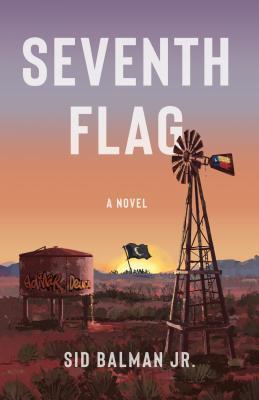
Seventh Flag by Sid Balman, Jr. is a family saga set in Texas that tells the story of three generations. Balman asked me to blurb the sequel, coming out next year, so I figured I should read the first installment before I tried to dig into the new book. Family sagas are challenging because there isn’t always a clear arc. Here, most of the drama is confined to the contemporary generation, with the information about their parents and grandparents being mostly backstory. Interesting backstory, with some incidents that might have made novels unto themselves, but not contributing to the book’s climax. Nonetheless, I was very engaged in the details of the family’s life. The story is really about two families: the Laws, who are big landowners, and the Zarkans, descendants of the camel drivers who came from Syria in the mid-19th Century when the US government decided camels made more sense for the Army in the arid Southwest than horses. Each generation of the two families connect, until they actually inter-marry in the current generation, which is where the real fireworks are. So now I’m ready to dig into the new book to see what happens next.
